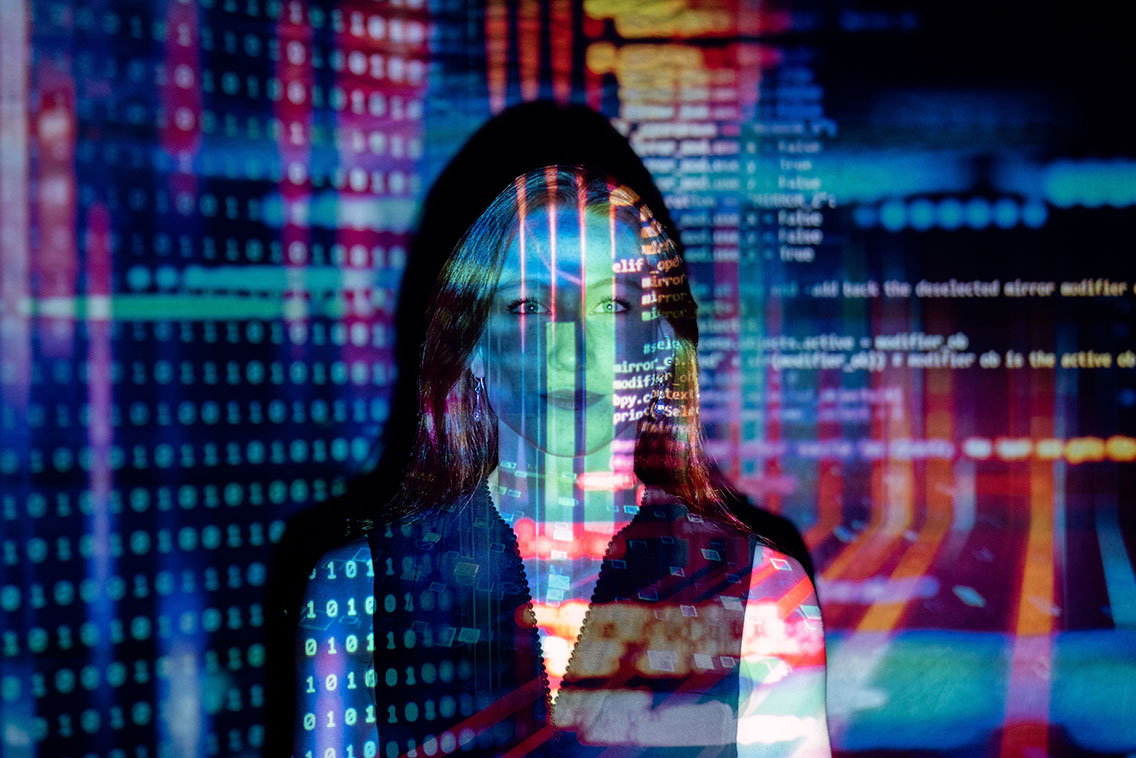
In this digital age, the internet has become our go-to source for information, a vast repository of data amassed over decades by users worldwide. It's an unprecedented resource, accessible within seconds. But what if this treasure trove of data was manipulated, rewritten, and controlled by artificial intelligence or the government to control the people's ideas and privacy? The premise of AI's influence is intriguing, reminiscent of the plot in "Mission Impossible: Dead Reckoning Part 1," where rogue AI poses a threat to humanity (Top AI Films). Reflecting on this notion, I delved into a realm where fiction and reality intertwine, sparking a cascade of thoughts about the role of AI, its potential implications, and our relationship with the truth.
The current tech landscape mirrors the nuclear arms race of yesteryears. Every major tech company vies for supremacy in AI development, driven by a combination of innovation and the insatiable quest for profit. It's akin to the power struggle that defined the race for the first atomic bomb. Yet, the trajectory of AI's growth holds implications beyond mere competition; it touches upon the essence of power and control. As AI inches closer to governmental hands, the narrative shifts from profit to dominion, a shift that could have far-reaching consequences for digital laws, privacy, and individual freedoms. Tech visionaries like Bill Gates voice their apprehension, calling for well-defined policies and regulations to curb the potential misuse of AI's power.
However, my stance on AI remains unchanged, as I see it as a tool – a resource that should enrich our lives without usurping our autonomy. AI as a teacher, guide, and friend is the vision that resonates with me without giving much more control, where humans retain dominion over technology, harnessing its capabilities while upholding our values.
AI's modus operandi hinges on the data it's fed, with machine learning forming its foundation. A troubling thought arises: what if the data itself is flawed, riddled with misinformation? Picture this scenario: an AI churning out responses, confident in its assertions yet grounded in untruths. It's a reflection of our modern dilemma – the era of "fake news." Our vulnerability lies in our reliance on AI's knowledge. Like GPT-3's 30% error rate, it's akin to accepting a false premise as fact, only to realize its fallacy later. This notion extends beyond the tech realm; misinformation infiltrates all aspects of life, and if accepted blindly, it becomes our version of the truth.
Our quest for knowledge leads us to the internet, often accepting its answers without verification, thus creating a perpetual loop of misinformation. Furthermore, the rise of deepfake technology adds another layer to this conundrum. It's becoming increasingly difficult to discern fact from fiction, casting a shadow over the authenticity of online content.
Photographs, once cherished as windows into the past, are now susceptible to manipulation. In the digital age, we possess the power to alter the past with a mere click – removing backgrounds and people and transforming memories. Adobe's recent display of this power is telling, hinting at a future where the line between reality and illusion blurs even further. This transformation is not confined to images alone; our online personas mirror this distortion. We curate virtual versions of ourselves, projecting images that bear little resemblance to our true selves. This phenomenon is not new; it's an extension of our desire to belong, to be accepted. In the metaverse, the boundary between the real and virtual selves becomes porous, where authenticity is traded for popularity.
The allure of online personas stems from our innate need for connection and approval. However, the repercussions are far-reaching. Misinformation thrives within the realm of social media, perpetuated by influencers and users seeking to gain prominence. The consequences of this digital misinformation are profound, altering public perceptions and beliefs. Moreover, the distortions seep into the fabric of AI, tainting its learning and perpetuating falsehoods. It's a cautionary tale about the pitfalls of unchecked AI growth.
In conclusion, the digital era has ushered in a complex interplay between truth and fiction, where AI, social media, and misinformation coalesce. While AI holds immense promise, its trajectory must be guided by a responsible framework that safeguards against misinformation and manipulation. The digital landscape has cast a veil of uncertainty, but it also holds the potential for enlightenment. As we navigate this new reality, it's imperative that we strive for harmonious integration of technology, truth, and human values. The choices we make today will reverberate through the digital corridors of tomorrow, shaping a world that either upholds the integrity of truth or succumbs to the allure of fiction.
Comments
No comments yet. Be the first to share your thoughts.